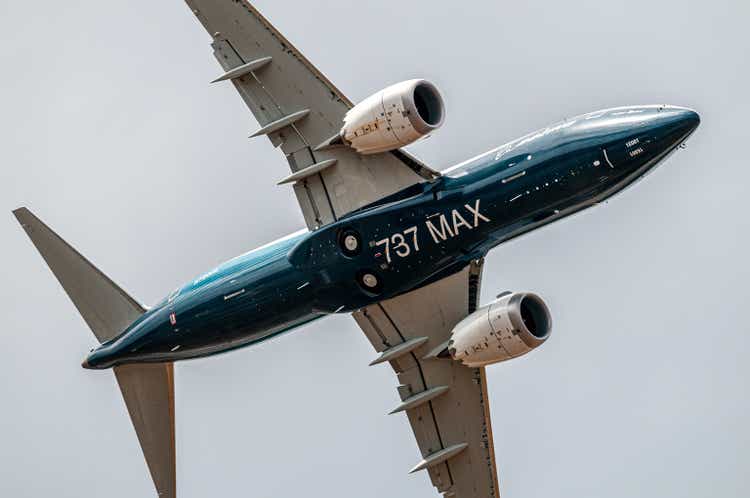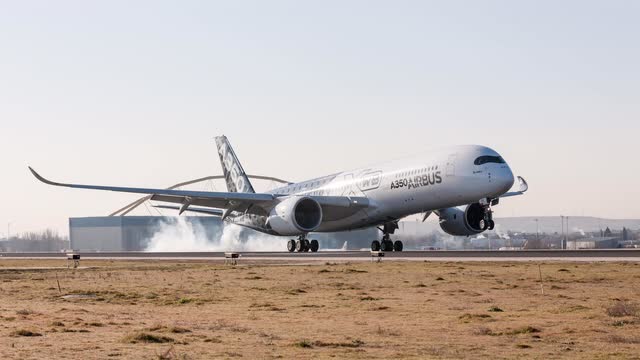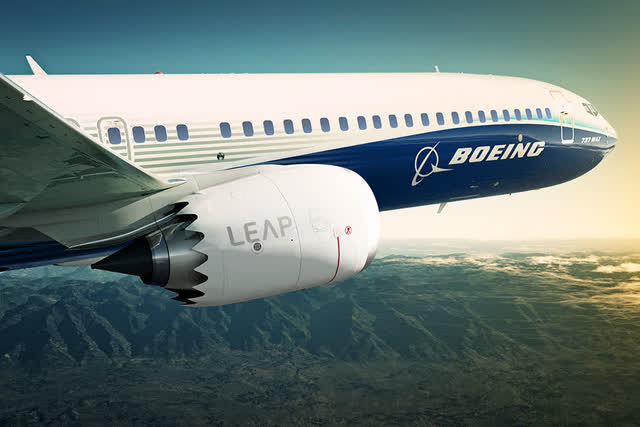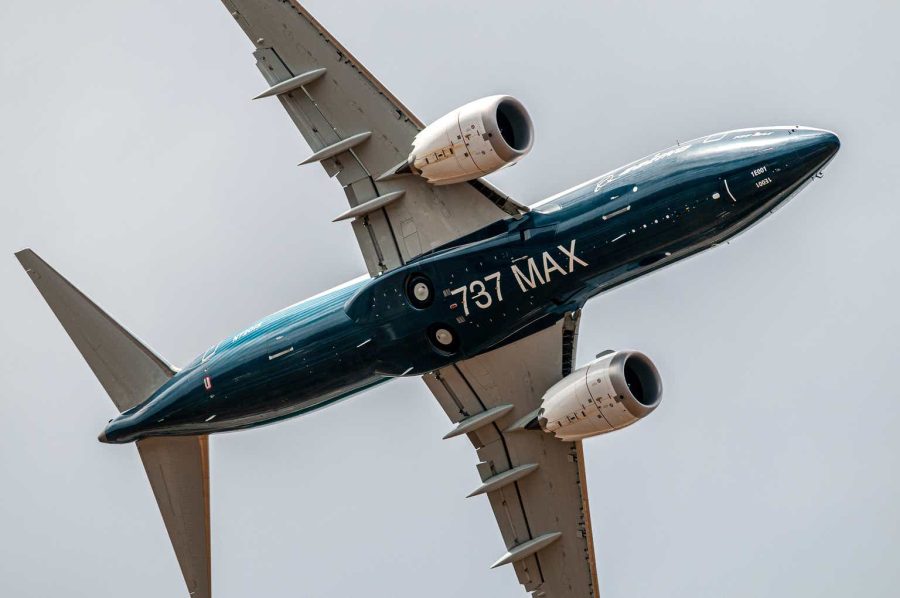Summary:
- Boeing acquires Spirit AeroSystems in a $8.3 billion all-stock deal, with shareholders receiving between 0.18 and 0.25 Boeing shares.
- Airbus receives $559 million compensation to take back lossmaking business from Spirit AeroSystems.
- Boeing’s acquisition of Spirit AeroSystems aims to bolster quality and oversight in the Boeing 737 MAX chain, potentially increasing production rates and improving reputation.

Wirestock
On the first of July, Boeing (NYSE:BA) announced that it would be acquiring Spirit AeroSystems (NYSE:SPR). In this report, I will be discussing the transaction details as well as the implications for Boeing and Airbus (OTCPK:EADSF).
Boeing Buys Spirit AeroSystems In All-Stock Deal
An agreement to buy Spirit AeroSystems is not a major surprise. The biggest questions actually were how the activities for Airbus would be carved out of Spirit AeroSystems and how the deal would be financed. For a long time, I have believed that Boeing would be acquiring Spirit AeroSystems in cash. However, as Boeing’s free cash flow will not be positive this year, that prospect has been out of sight. Instead, shareholders will be receiving between 0.18 and 0.25 Boeing shares depending on the volume weighted share price of Boeing stock on the second trading day prior to the closing of the deal, which is expected in mid 2025. The floor has been established on $149 and the ceiling has been established at $206.94.
The deal is valued at $4.7 billion and including $3.6 billion in net debt, the total transaction value is $8.3 billion. What’s interesting is the fact that Boeing stock price went up in reaction to the announcement of the Spirit acquisition. From the way the transaction is structured, there would be some dilution of shareholders. However, we also calculated the impact and the dilution is rather small. The exchange ratios would dictate that between 22.7 million and 31.5 million shares would be issued for Spirit AeroSystems shareholders to become shareholders of Boeing and that would be a dilution of just 3.7% to 5.1% and that does include some stock to be issued to eventually pay Airbus to take over some business.
So, while the stock price action might be counterintuitive with dilution in mind, I believe that Boeing shareholders will be happy with this deal as it’s a very small dilution, and it’s better than having to raise billions of dollars in debt plus associated interest expenses. This was the best outcome for Boeing shareholders.
Airbus Gets Paid To Take Its Business Back

ESA
When following how talks between Boeing, Airbus and Spirit AeroSystems were progressing, I noted that Airbus would be looking to get a compensation for taking some loss-making business back from Spirit AeroSystems. The way OEMs have worked for years is that risk has been transferred to the supply chain and that risk is now being absorbed back. But Airbus has not been keen on absorbing that risk, so they had to be compensated for it. That creates the interesting situation where Airbus will be receiving a $559 million to take over the A220 pylons business in Wichita, the A220 wings and mid-fuselage sections produced in Ireland and Casablanca, and the Airbus A350 fuselage sections produced in North Carolina and St. Nazaire in France. During the first quarter, Spirit AeroSystems announced nearly $450 million in forward losses on the A220 and A350 programs. So the $559 million that Airbus is receiving to take their business back is merely something to cover the expected losses. There’s no strong opportunity to cut out margins that Spirit AeroSystems would normally obtain because there’s no profit on those programs to start with. Also, important to note is that the equity value and the $37.25 per-share price to acquire Spirit AeroSystems suggests that there are north of 126 million shares, while the most recent readings show around 112.8 million shares outstanding for Spirit. This suggests that around $500 million will be raised from investors to pay Airbus at the closing of the transaction.
The Transaction Is Good News For Boeing

The Boeing Company
For Boeing, the transaction will be good news. On any normal day, the Boeing 737 MAX program is a cash cow for Spirit AeroSystems. The focus right now is not on margins. But the over the longer-term, bringing the production on the Boeing 737 aerostructures in-house means that Boeing will be eliminating the margins that would previously have gone to Spirit AeroSystems. Essentially, this mean that Boeing could become more competitive on pricing, or it could bolster its profits. However, that’s the nice remote opportunity about which nobody will really care at this point. There are far bigger reasons to acquire Spirit AeroSystems, and it’s to protect the $250 billion backlog for the Boeing 737 MAX. It makes any savings that Boeing could achieve by margin elimination futile. For Boeing, this acquisition is all about bolstering quality and oversight in the supply chain to unlock the value of the Boeing 737 MAX, rather than having to halt the 737-assembly line one day because the FAA suspended production after another quality-driven incident.
While I was previously not a big fan of Boeing acquiring Spirit AeroSystems, I changed my mind a while ago for the simple reason that the risk with Spirit AeroSystems had grown too big to leave it in the company’s hands. The risk of not acquiring the business no longer weighed favorably for any of the companies involved. In some way, Boeing acquiring Spirit AeroSystems can be seen as correcting the mistake of spinning off the company two decades ago.
Boeing sold Spirit AeroSystems, which was widely seen as the company spinning off plants focusing on an assembly role by integrating various components rather than producing them. This also allowed the company to outsource and transfer risks down the supply chain. The company is now paying the price for that. In 2005, it sold the Wichita plants to Onex for $950 million which would be around $1.5 billion today, and by 2025 Spirit AeroSystems will be bought back for $4.7 billion. Investors will be paying the bill of this, but it’s a $3.2 billion value destruction to say the least. Furthermore, Boeing will be absorbing the Boeing 787 cost that it transferred to Spirit AeroSystems. Spirit AeroSystems has been struggling with the Boeing 787 program as Boeing never provided a pricing that would allow the company to really make a sustainable profit on it and now Boeing is buying that loss-making business back and has to see how it can do better.
So, Boeing or better said Boeing shareholders are buying back a chunk of risk that was transferred into the chain the past two decades. However, the stock price has reacted positively to the acquisition news because there also are positives. Spirit AeroSystems is already delivering more clean fuselages. So, the quality at Spirit AeroSystems is improving. This will eventually give the company a cleaner path to increasing production rates on the Boeing 737 MAX program. There are about 4,800 Boeing 737 MAX units in backlog and my estimate is that it will take around 500 deliveries to pay for the acquisition of Spirit AeroSystems and 850 units when debt is included. That leaves a big chunk of backlog to actually generate value for Boeing shareholders against a chain on which the company has better overview and quality control.
I also believe that for future airplane developments, having more production knowledge will be beneficial. With the acquisition of Spirit AeroSystems, Boeing is taking the manufacturing of the biggest and most complex aerostructure in the world, namely the 737 fuselage, in-house, and it already has a composite wing manufacturing plant for the Boeing 777X. All of that is giving Boeing more production capabilities and that’s important as Boeing’s outsourcing strategy has resulted in risk transfers that came at the cost of quality and oversight, while suppliers have now also learned how difficult it is to make the outsourced part in a profitable way. Those suppliers would be looking for better pricing on future projects and with that in mind, it’s very good that Boeing has the ability to produce more themselves if there’s the need for it for a new airplane development. It is a fundamental change where Boeing is going back from system integrator to airplane manufacturing.
Furthermore, the company is adding a profitable Defense & Space segment. Boeing’s segment has been struggling. It’s a business with $6.5 billion to $7 billion in sales quarterly but with a low single-digit profit, if any. In comparison, Defense & Space revenues for Spirit AeroSystems grew to $251 million in the most recent quarter, with margins of 12.8%. So, that’s going to provide a small positive addition to the defense segment with exposure to the CH-53K helicopter, the FLRAA program, the B-52 bomber and the B-21 stealth bomber. So, there are some positive business elements as well for Boeing, next to the better control of the Boeing 737 enabled by the acquisition.
With the re-integration of Spirit AeroSystems, we could also see Pat Shanahan becoming a Boeing employee once again, and I believe that he is qualified to become Boeing’s next CEO.
Is The Acquisition Price Fair For Spirit AeroSystems Shareholders?
In a recent report on Spirit AeroSystems, I marked the company a buy based on the fact that it was an acquisition target. I did not expect a huge premium to be paid for the business, but I did put a $34.43 price target for the stock for 2025. So, the acquisition price of $37.25 is quite a bit better than I had anticipated. If Boeing’s stock price falls below the floor, we will see that the effective purchase price for Spirit AeroSystems will be less, while it will be higher when the ceiling is exceeded. Overall, the acquisition price seems more than fair to me.
Conclusion: Boeing Acquiring Spirit AeroSystems Is The Only Right Step
The decision from Boeing to acquire Spirit AeroSystems is the only right step. This is not about cost synergies or eliminating margins. This is about bolstering the manufacturing quality and oversight in the Boeing 737 MAX chain. By increasing oversight and quality, Boeing will have cleaner fuselages in its system and more oversight and a stronger quality management system which ultimately and ideally will allow Boeing to produce the Boeing 737 MAX at higher rates again and more importantly recover some of Boeing’s reputation that was lost over the years as the company took on a role a system integrator rather than an airplane manufacturer.
I believe that the agreement reached is in the best interest of all parties involved, as well as the industry and travelers around the globe.
Editor’s Note: This article discusses one or more securities that do not trade on a major U.S. exchange. Please be aware of the risks associated with these stocks.
Analyst’s Disclosure: I/we have a beneficial long position in the shares of BA, EADSF either through stock ownership, options, or other derivatives. I wrote this article myself, and it expresses my own opinions. I am not receiving compensation for it (other than from Seeking Alpha). I have no business relationship with any company whose stock is mentioned in this article.
Seeking Alpha’s Disclosure: Past performance is no guarantee of future results. No recommendation or advice is being given as to whether any investment is suitable for a particular investor. Any views or opinions expressed above may not reflect those of Seeking Alpha as a whole. Seeking Alpha is not a licensed securities dealer, broker or US investment adviser or investment bank. Our analysts are third party authors that include both professional investors and individual investors who may not be licensed or certified by any institute or regulatory body.
If you want full access to all our reports, data and investing ideas, join The Aerospace Forum, the #1 aerospace, defense and airline investment research service on Seeking Alpha, with access to evoX Data Analytics, our in-house developed data analytics platform.

